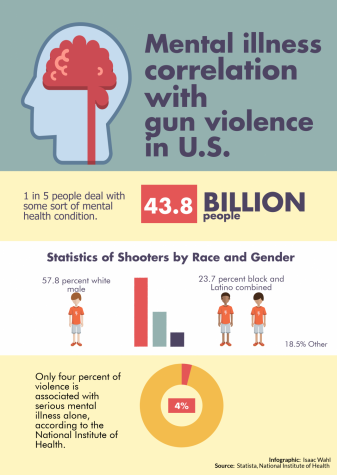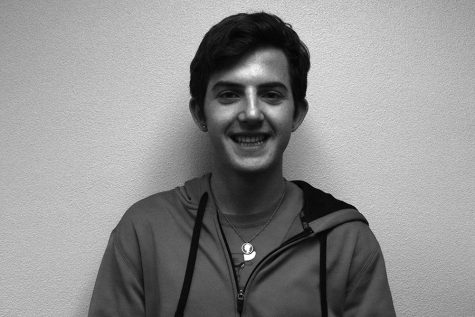Recent mass shootings increase mental health stigma
Justification of mental illness seems unequal
March 13, 2018
The recent mass school shooting in Florida and the Trump administration’s response provokes many questions and debates exploring the correlation between mental illness and gun violence.
According to The New York Times, the school shooting at Marjory Stoneman Douglas High School in Parkland, Florida was one of the deadliest school shootings in the U.S. In Trump’s response, on the day of the shooting, he was very pointed towards, “(tackling) the difficult issue of mental health,” which seems to be avoiding many other indispensable aspects of the problem.
What is peculiar about Trump’s statement on mental health is that, according to his administration’s 2019 budget, the government is planning on making a 22.5 percent cut to Medicaid.
According to the Kaiser Family Foundation and the Medicaid website, Medicaid is the single largest payer for mental health services in the U.S. Since the 2019 budget cuts a large amount of funding from the top resource for people dealing with mental illnesses, it makes it very unconvincing that Trump truly cares about the “mentally ill.” 
While around 21 percent of the U.S population is affected by some sort of mental health condition, only 4 percent of violence is associated with serious mental illness alone, according to the National Institute of Health.
In addition, a 2015 study found less than 5 percent of gun-related killings in the United States between 2001 and 2010 were committed by people diagnosed with mental illness. Based on these numbers, the likelihood that the majority of mass shootings are because of mental illness is slim.
Focusing only on the mental health aspect of mass shootings and violence further stigmatizes the mentally ill and allows the government to avoid taking proper action to improve current regulations on the guns.
Another large aspect that seems to fall into play with mass shootings and violence is race. According to Statista, 57.8% of mass shootings that occurred between 1982 and 2018 were initiated by white men with legally obtained guns. This is massive compared to the 23.7% initiated by Black and Latino shooters combined.
While this is true, the cases are justified through different means based on race. Cases of Black and Latino shooters have often been categorized or seen as terrorist acts, while the many white shooters have been seen as mentally ill.
Why focus on the mentally ill, when it seems that only select shooters are considered “mentally ill”? If there truly were a strong correlation between the two, then the pattern should be continuous throughout incidents, not just when it is preferred based on bias.
To throw the blame on mental illness is a way for people to easily distance themselves from the scary, yet important situation that the U.S faces. Many want a simple solution, so to say the shooters are mentally ill is a simple way to appear to solve the mystery of their actions. However, correlating gun violence with mental health is both unfactual and puts a negative stigma on those who do face the everyday battle with mental health.



